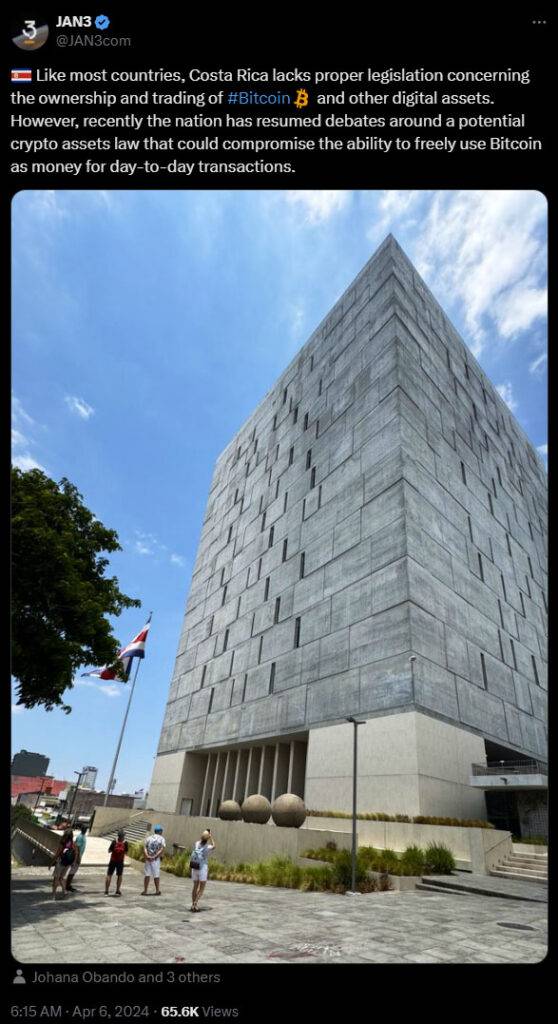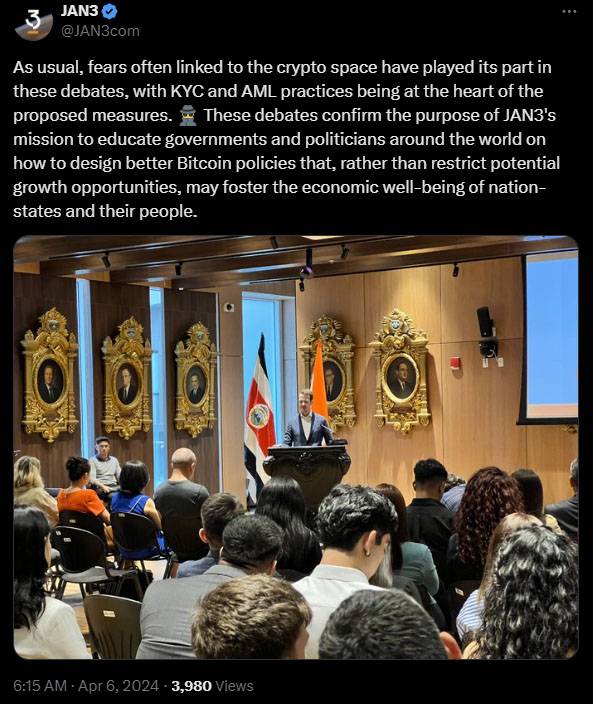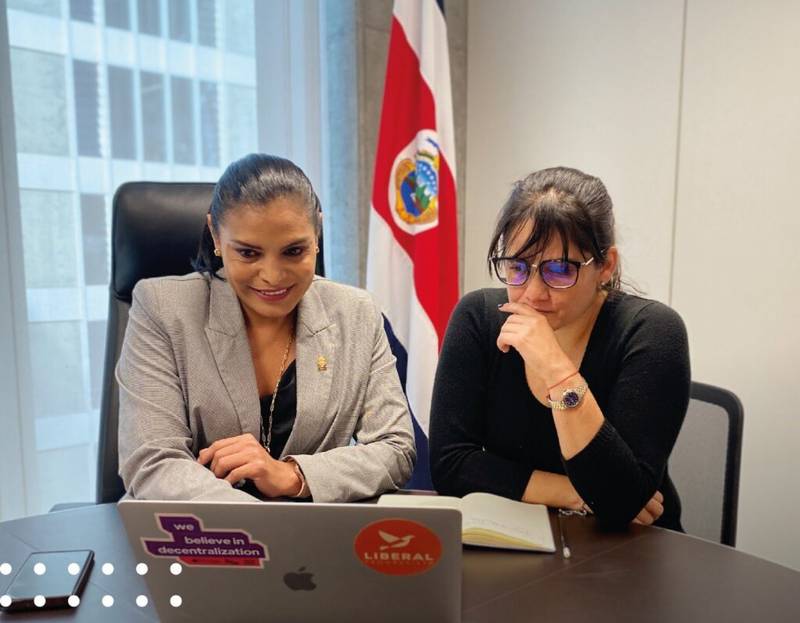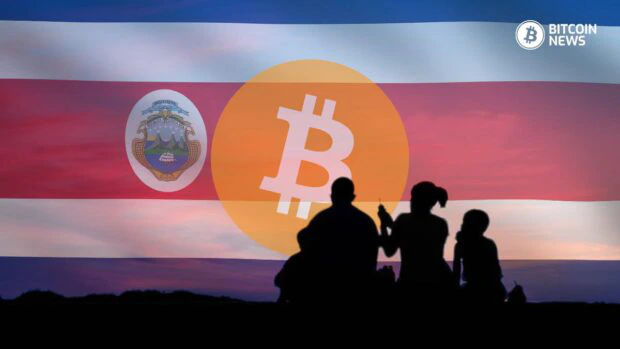Costa Rica finds itself at a crossroads as it contemplates proposed legislation that could potentially limit its citizens’ ability to use Bitcoin for everyday transactions. The story of Costa Rica Bitcoin regulation, shared by renowned Bitcoin technology firm Jan3 on social media platform X, underscores the ongoing debate surrounding the legal framework governing digital asset ownership, trading, and investment within the Latin American nation.

The post reads:
“The nation has resumed debates around a potential crypto assets law that could compromise the ability to freely use Bitcoin as money for day-to-day transactions.”
Effective Set of Regulations
Key concerns highlighted by Jan3 revolve around the necessity for comprehensive regulation, including effective Know Your Customer (KYC) and Anti-Money Laundering (AML) practices. The company notes the importance of educating governments and politicians to fight the “fear” of digital assets.

It states:
“These debates confirm the purpose of JAN3’s mission to educate governments and politicians around the world on how to design better Bitcoin policies that, rather than restrict potential growth opportunities, may foster the economic well-being of nation-states and their people.”
Costa Rica Bitcoin Adoption Amid Failed Monetary Policies
Costa Rica’s engagement with Bitcoin mirrors broader trends observed across Latin America, where bitcoin adoption has steadily gained momentum. Economic instability, failed monetary policies, and rampant inflation have catalyzed this growth, positioning BTC as an attractive alternative for individuals seeking financial stability.
Notably, Congresswoman Johanna Obando sees Bitcoin “as a tool that can improve the lives of all Costa Ricans.” As Jan3 highlights, she emerges as a leading advocate for Bitcoin in the country, steering legislative discussions towards embracing Bitcoin’s transformative potential.

Moreover, renowned figures like Samson Mow and Prince Philip of Serbia have highlighted Costa Rica’s considerable potential in renewable energy. Jan3 writes:
“[They] themselves have seen with their own eyes the great Bitcoin mining potential that lies in Costa Rica, with the country being a regional powerhouse when it comes to renewables.”
Bitcoin-Centric Ventures
Jan3 emphasizes the significant opportunities for Bitcoin mining in Costa Rica, positing it as a potential catalyst for positioning the nation as a renewable energy leader in Latin America. Additionally, according to the Costa Rican Tourism Institute, the tourism sector is a vital component of Costa Rica’s GDP, contributing to 6.3% of GDP.
Jan3 tags ventures like Bitcoin Jungle that could serve as a blueprint for future businesses, facilitating Bitcoin payments for tourism-related services within the country. It states:
“Costa Rica [is] the ideal home for Bitcoin Jungle, based in Uvita, where hundreds of merchants, expats, locals, and travelers already willingly choose Bitcoin as their preferred currency.”
Rising Recognition
The intensified debates concerning digital asset regulation in Costa Rica have garnered attention within the bitcoin community, especially in light of the recent introduction of spot bitcoin Exchange-Traded Funds (ETFs), which significantly influenced the market earlier this year. The proposal to legitimize Bitcoin for day-to-day transactions in the country underscores the accelerating pace of global bitcoin adoption.
Costa Rica’s stance on embracing Bitcoin could potentially set a precedent for other nations considering similar regulatory strategies. The outcome of these deliberations holds significant implications for the future trajectory of digital asset policies on a global scale, making it a subject of keen interest and scrutiny.










